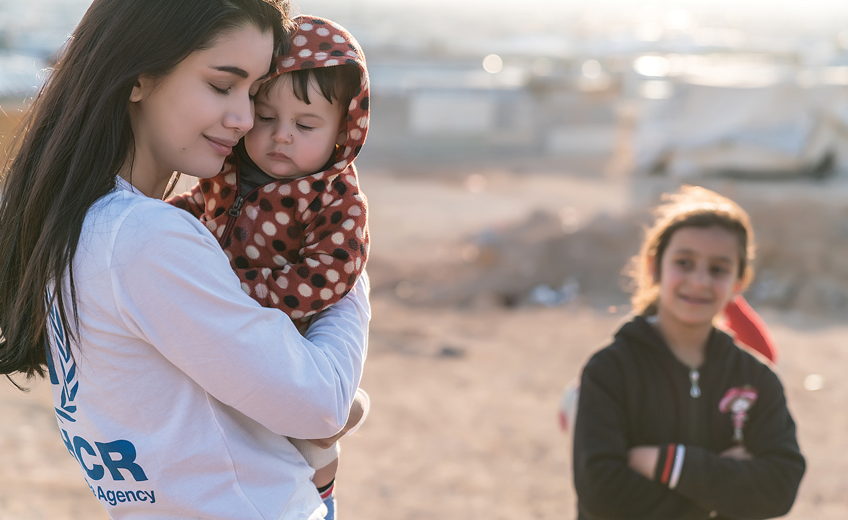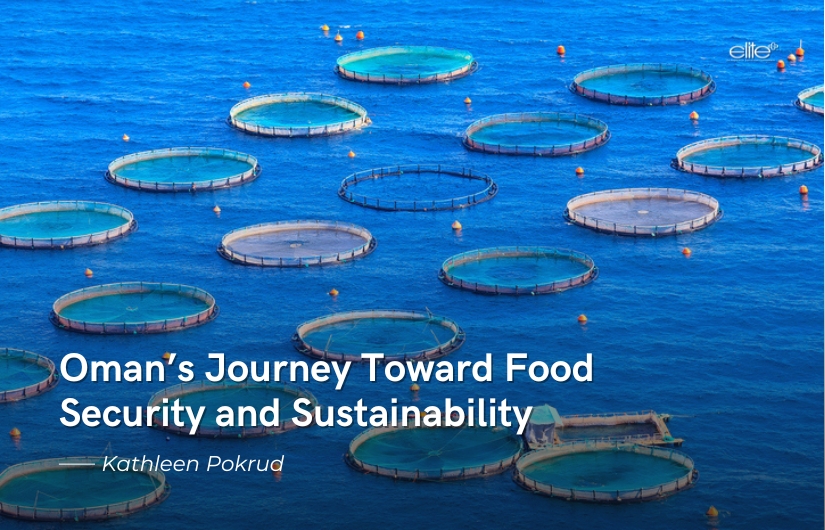Praya “Pu” Lundberg once thought her life was unlucky and full of frustrations. An actress since she was 13, her teenage years lacked friends her age and the freedoms of a normal childhood. Her playground was a film set, her free time after school spent on casting or working until midnight.
“I used to be very angry when I was young and I thought it was unfair that I had to work all the time,” she recalled. Praya, now 27, however, considers herself one of the most fortunate women in the world. “It’s not essentially about money or fame. What I value is living a meaningful life. Being an actress, opportunities come to me every day. I have abilities to share my income, my experience and love with others.”
Praya is a true role model for people looking to discover how important it is to know themselves and follow their dreams. The half-Swedish, half-Thai supermodel and actress has changed from being stubborn and headstrong to focused and ambitious, but with a positive, sweet mindset. What changed her? Discontent, which made her become determined in everything she does. Once when she felt unsatisfied with her body, she trained hard and became the first female actress to complete the Bangkok Marathon in 2015. Once when she felt unsatisfied with her career, she strove harder to meet international standards – she is now signed with a modelling agency in New York. And when she was unhappy with the global situation, she didn’t just complain about it but took action to help.
Growing up in a multicultural environment, Praya always had a special interest in global issues – climate change, refugees and AIDS in particular – and is very passionate about philanthropy. She has been involved in many charities and causes, helping to raise awareness and funds for many organisations such as Operation Smile, which provides free surgery for children and young adults born with facial deformities, and Phrabatnampu,which operates as a hospice for people with HIV/AIDS.
Since 2014, she has been passionate about migration and refugee issues and is currently volunteering as a goodwill ambassador with the United Nations High Commissioner for Refugees (UNHCR). According to the UNHCR, an unprecedented 65.3 million people around the world have been forced from their homes. Among them are nearly 21.3 million refugees, over half of whom are under the age of 18. In Thailand there are 102,553 refugees, predominantly ethnic minorities from Myanmar such as Karen and Karenni, who live in nine refugee camps in four provinces along the Thai-Myanmar border. Refugees have been fleeing conflict and crossing Myanmar’s eastern border jungles for the safety of Thailand for nearly 30 years.
“I can’t imagine being away from home that long,” Praya said. “I can’t imagine the pain they’ve been through. The refugee crisis is a global crisis. No continent is spared this issue.”
Despite her busy schedule travelling the world, Elite+ had a chat with the first goodwill ambassador from Thailand and Southeast Asia, who shares the prestigious title with Hollywood celebrities Angelina Jolie and Cate Blanchett. We spoke about her ambassadorial role, her passion for helping refugees and her hopes for the future of the world.
Why did you join UNHCR? Most of us stay in our comfort zones – why is this issue so important to you?
It was three years ago when I went online and read about the Syrian and Rohingya crises and they were huge in the news. I saw photographs of a lot of young children on board and it was very disturbing, so I decided to email UNHCR and I said something needs to be done on the issue.
To be honest, you watch the news and it’s on every day. Since World War II, the number of refugees keeps growing, so for me I don’t find this issue far away at all. We are not only talking Syria, we are talking about Sudan, we are talking about so many areas across the world where there is still so much violence and conflict, and refugees are a direct result of that. So I don’t find this issue far away from me at all.
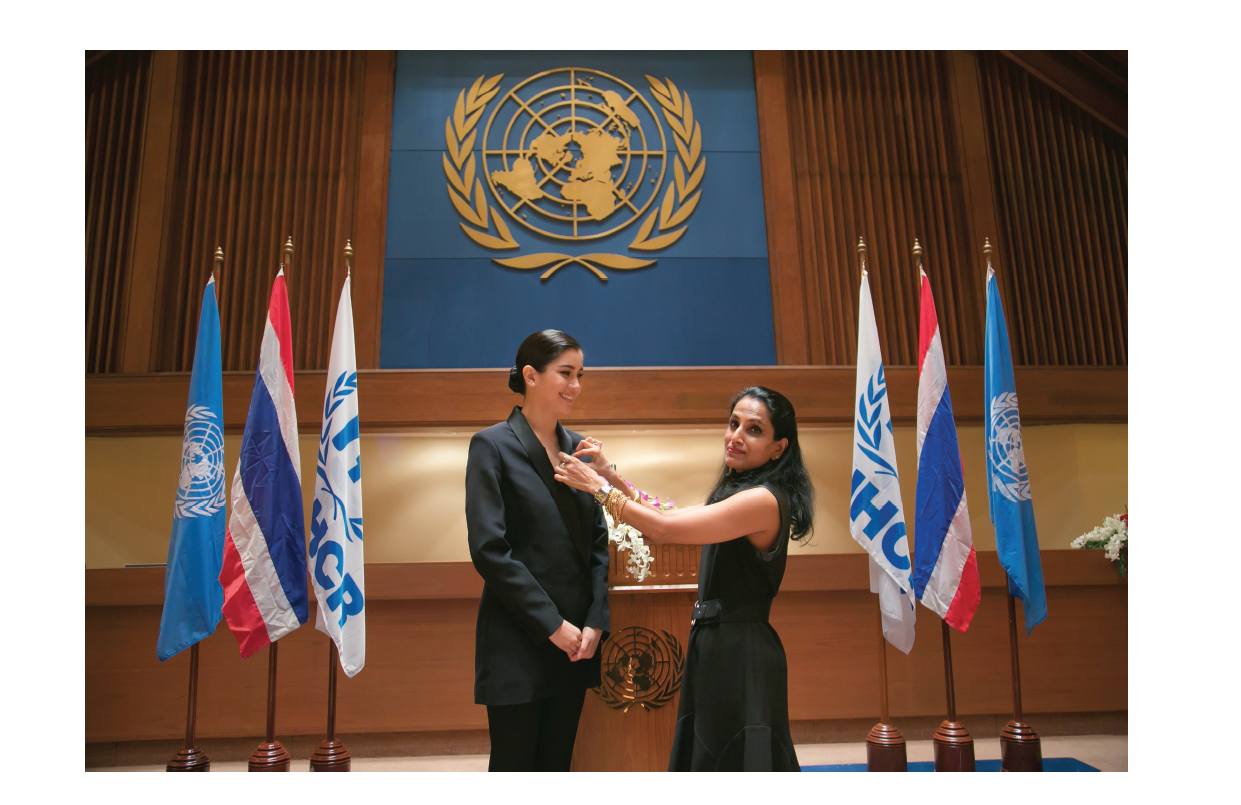
There are many humanitarian issues that need help and support. Why refugees?
I think refugees are very vulnerable. When a country goes to war, you lose everything. When I say everything, it means everything. We are talking about dignity, family, money, livelihood, self-confidence, mental state. I can’t imagine having something and losing everything, and not being able to help. So I find this issue huge because 65 million people around the world are suffering and 40,000 are added every day.
Which part of the world is most vulnerable and desperate for help right now?
It’s everywhere, from Syria to Africa to Thailand. Everywhere requires emergency aid, education, human rights. It’s a global thing that is going on every day. There are a lot of vulnerable people, a lot of urban refugees who require help. We are all human. There is no one nation, or skin colour, or racial background, or nationality.
Thailand is my home and I have so much love for this country. I am who I am and the reason why I advocate so hard for refugees is because Thailand is my home. It taught me everything. Imagine if one day we can’t come back to Thailand, the place we call home, how heart-breaking that would be. The reason why I’m so passionate about this cause is that I think everyone wants to go home. I’d like to advocate so they can go home to a safe environment.
Every camp I have been to has a special meaning to me. I met some brave young children. I met some very strong women. I met a great man who escaped war and takes care of his three daughters as a single dad. Every experience touches my soul and that makes me very passionate about it.
You just visited the camps in Jordan. How was it?
It changed my world. To meet them and see the resilience, kindness, bravery of Syrian refugees changed my life. It was an honour to meet such brave, courageous, strong people. What people don’t know about refugees is they have been through immense trauma, yet they come out with the biggest hearts and the most gracious resilience. I have nothing but sympathy and empathy and appreciation for what they’ve been through.
Most of these people escaped war – some experienced bombs being dropped on their houses. They lost their mothers, their fathers. Some could get in touch with their families and some will never know if they will see their families again. Some of them are children who saw their neighbours pass away right in front of them.
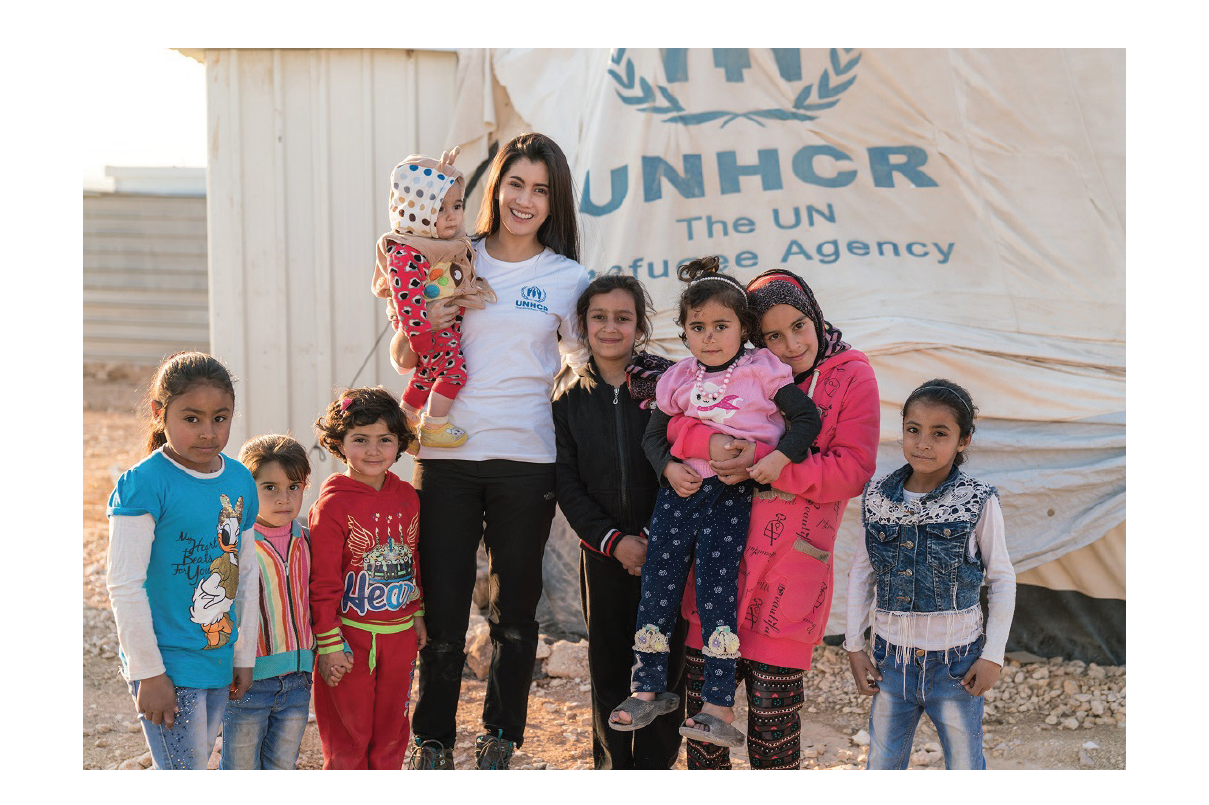
They told me they hope in the future they will be able to go home again. Everybody wants to go back to a safe environment and that is something they can’t do. We as a global community are no different because Syria was a rich society; they had agriculture, manufacturing, industry, just like our country. A lot of people are carpenters, teachers, doctors, lawyers, engineers. Some refugees told me that before they left, they had a totally normal life. They had a car, a house, until they lost everything. I can’t imagine that pain. It was a life-changing experience and I have nothing but true love for Syrian refugees. They have my heart.
How does UNHCR help the refugees in Jordan?
UNHCR set up a camp in the middle of the desert. If you see the conditions, you will be amazed how they go there and set up camp and provide education, food, shelters, blankets. Every donation you give, they are able to give to almost 700,000 people.
I went to two camps: Zaatari and Azraq. One of the camps is incredible. They built a huge solar panel so it’s going to be the first clean renewable energy refugee camp in the world. It’s incredible because after 15 or 20 years when people go back to their countries, what they will leave behind is that solar panel farm which can be used in Jordan for other purposes. This is an incredible project that UNHCR does to help people.
Thailand also has a lot of refugees in nine camps on the Thai-Myanmar border. How have you worked to help?
I’ve been to Sangkhlaburi, Mae Sot and Mae La, and I’m going to Mae Hong Son.
Refugees have been in Thailand for a long time and most of them are from Myanmar. But don’t forget that even though they have been in this situation for a long time, they still need funding and support because people are refugees for most of their lives.
The situation has improved. Thailand is a very good example of how well we handle the refugee crisis and we are taking care of refugees very well. The Thai government has been offering much help and support and we have to thank the Thai government and Thai population in the North, because without the government and general public, we would not be able to perform and operate. Visiting the camps has made me realize that a lot of refugees are very thankful to Thailand to be able to stay in the safety of the camps. I have met some very beautiful and kind families in the camps – some have been resettled and some have gone home.
Most refugees around the world have experienced discrimination and ill-treatment. How can we educate people about this issue and stop discrimination?
This is the main issue globally, not just in Thailand. Humans by nature are kind and compassionate – we are very empathetic. I believe that if we are able to learn about the lives of refugees and what they have experienced, then I think a lot of people would be very empathetic towards refugees. I think it’s a part of my job as a global ambassador to share experiences of refugees and their lives. I think one of the biggest issues to overcome this challenge is people need to understand, and that’s my job to help them understand. With understanding, I believe people will come and help. Refugees are refugees on average for 20 years of their lives, so we need continued support so that they can have a relatively normal life and stay in a safe environment.
What are some other causes you care about?
Another thing I’m very serious about is AIDS. AIDS can be transferred from mother to child. Thailand was the first country to research ways to prevent that, and that’s impressive. I care about every charity I can, but I can’t do everything. I’m already working for three charities and next is going to be global warming and wildlife conservation in Thailand. I fly a lot for personal work. I fly a lot for charity. I travel a lot, but I enjoy my life, especially working with charities. I’m very lucky that I’m in this position; I can enjoy and embrace every moment of goodwill to good causes.
Any other issues in Thailand you want to help with?
I really want to work on helping support education in Thailand. I think education is something we can all work together on so that more children will get an opportunity in education. The other thing I would like to work for is global warming and wildlife conservation, which is very important in our country. Look at how many animals become extinct and endangered.
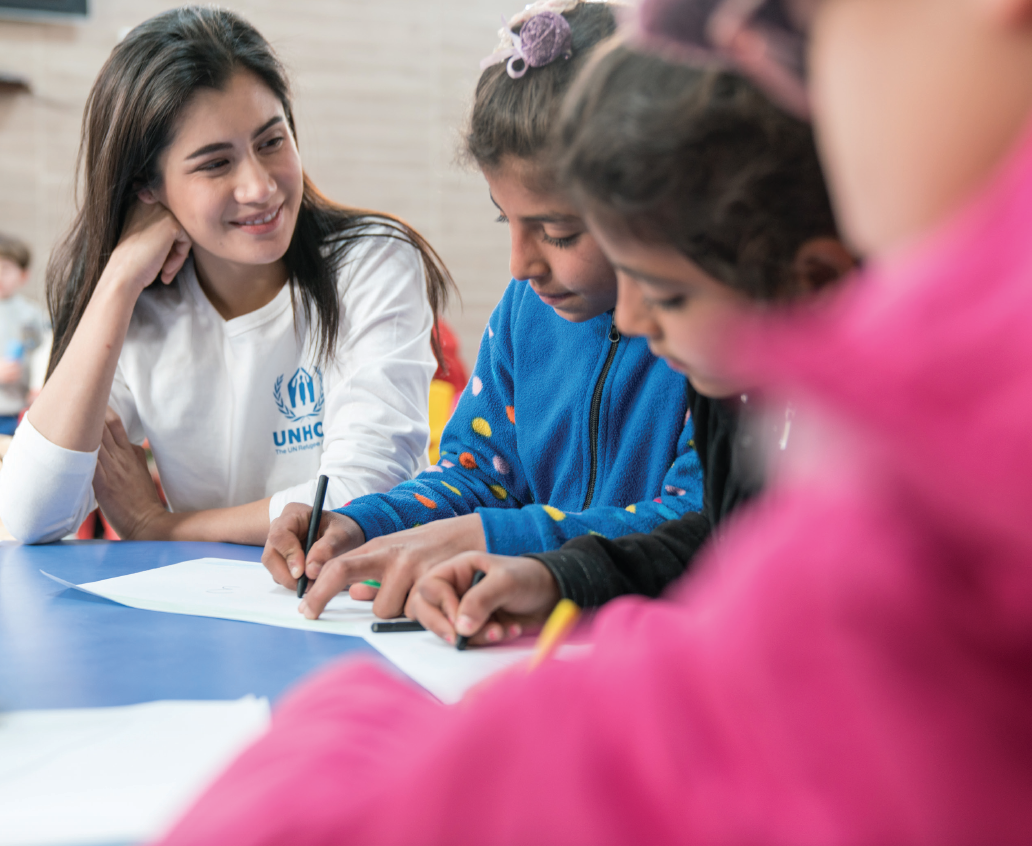
Live life with meaning. And by meaning I don ‘t mean success, I don ’t mean fame, don ’t mean having a huge amount of money in the bank account. Meaning is living life as a human being and serving a purpose to humanity, making a contribution.
If we don’t do something about it, we won’t leave anything for the next generation. With the amount of fossil fuels that we lose a year, or the amount of carbon dioxide we emit, we can’t keep going at this rate. And as a member of the global community, we, especially in this generation, need to work to help preserve the world we live in. I’d like my grandchildren to be able to live and see the beautiful things I have got to experience. I scuba dive. I hike. I love animals. I want to leave the world better than how we accepted it.
I stopped eating beef last May because cows emit methane and that contributes to global warming. I love beef but I genuinely care about the cause.
What makes you so determined and caring about so much of the world?
I’m a very passionate person. I have a caretaker syndrome. Nothing in life is permanent – not money, not fame, not reputation, not relationships – but what you leave behind, your values, what you teach others, how you treat others and how you make them feel. That’s permanent. So I stick to that and I live my life according to that. Live life with meaning. And by meaning I don’t mean success, I don’t mean fame, don’t mean having a huge amount of money in the bank account. Meaning is living life as a human being and serving a purpose to humanity, making a contribution, so that is who I am and what I believe in.
You seem so ambitious in everything you do. Have you ever failed, and how do you lift yourself up again?
So many, many times. We are human, we are not perfect. We are meant to fall. Without suffering there is no wisdom, that’s a fact. If you never fall from a bike, you will never know how to ride one. If you never fall when you try to walk, you will never learn how to walk. If you never almost drown from swimming, you will never learn how to swim. Same as human nature, if you never feel pain, loss, disappointment, you will never learn to appreciate what is good.
So I think failure is the most beautiful thing. I fail so many times and I never feel embarrassed to admit it because I believe that at least I learn something from my failure and I hope others will learn from my failure as well. Between character and reputation, character is more important. Reputation is what people think you are but character is who you are. I’m very proud that I fell over many times. The great thing about being human is that you grow and learn from your mistakes. Without failure, you will never grow.
Nowadays in this fast-paced world, people care so much about themselves – life, work, family – without looking at others, especially the underprivileged. How would you encourage people to care more about others?
The key goal to end refugees is to achieve peace and unity. I think the only way to achieve that is to teach our generation and the generation after to learn to love one another and that when we do have war, when we do have conflict, people get hurt, people lose and we all suffer.
So the only way we can end the issue of refugees is to teach people to understand and appreciate peace. Open up your heart and take a look around. Just walk along the street and look at how many people are less privileged than us. I’m not just talking about refugees. There are so many causes in this world that need to be focused on if you only take a look. I believe humans by nature are empathetic. If you see someone crying across from you, and you don’t speak the same language, you already know she is sad. You understand that because we are all the same, we cry the same, love the same, laugh the same, feel joy the same, feel loss the same. The only way people in a fast-paced world can change their understanding and be more compassionate is to take more notice. Be mindful. It’s not hard.


